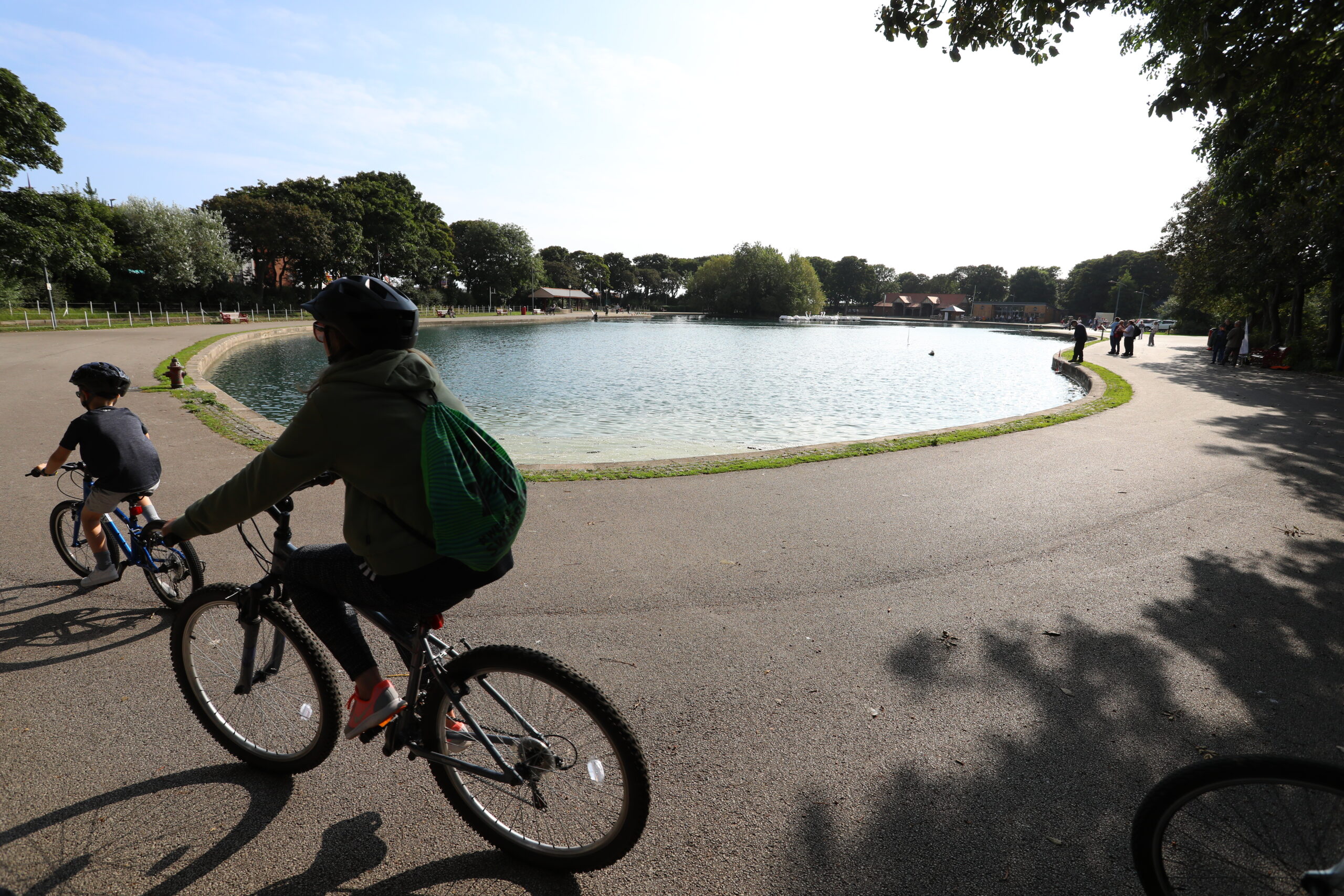New strategy aims to ensure half of all short journeys are by active travel
A new region-wide strategy aims to ensure that over half of all short journeys in the North East will be walked, wheeled or cycled by 2035 – good news for the environment, public health and the local economy.
The North East Active Travel Strategy aims for active travel to become the natural first choice for short everyday travel and combine it with public transport for longer journeys. To achieve a 50% share of travel, we would need a 45% increase in active travel rates across the region.
The strategy is set to be discussed by the North East Joint Transport Committee on 20 December and, if agreed, the draft strategy will move to public consultation in the new year.
The strategy outlines plans for a major package of investments in the region’s active travel network totalling £500m. The initial list of regional schemes up to 2035, is a live programme and is expected to grow over time.
Achieving a 45% increase in active travel by 2035 would bring forward huge benefits across the region including:
- Growing our regional economy by £350m a year
- Reducing carbon emissions – potentially saving around 80,000 tonnes of CO2 emissions per year
- Prevent around 1,000 premature deaths by 2035 – primarily due to increased physical activity levels
- Improve connectedness of communities and reduce social isolation
- Improve air quality and lower noise levels as congestion eases
- Save car drivers on average around £70 per year
The new strategy builds on The Making the Right Travel Choice Strategy (2022), which set a target to encourage car users to switch one journey a week to public transport, walking or cycling and for people who don’t have access to a car to continue to travel sustainably. The new strategy will help to achieve this switch to sustainable travel by enabling more active journeys – making them easier, safer and more enjoyable.
Cllr Martin Gannon, Chair of the North East Joint Transport Committee, said: “Active Travel is great for personal health and well-being, our environment and our local economy. Sadly people in our region are the least physically active in England, which leads to poor health outcomes such as premature deaths and additional costs to services such as the NHS.
“We hope to tackle this by making major improvements to the active travel network so that it’s much easier, safer and more appealing for local people to enjoy active travel, and that it becomes the natural first choice for everyday journeys.
“The draft strategy outlines an ambitious plan to boost active travel meaning that by 2035 more than half of all of regional short journeys are walked, wheeled and cycled. Delivery would see major improvements including new and enhanced infrastructure, new cycle hire schemes, training, education programmes and more.
“If we all commit to this switch to active travel, we will unlock an additional £350m to grow our local economy every year, improve public health, and, as a result, prevent around 1,000 premature deaths, improve our air quality and greatly lower carbon emissions by 80,000 tonnes a year.
“The new draft strategy outlines our initial proposals but we want to hear what local people think and we hope to launch a public consultation in the New Year. Please take a moment to review the plans and share your views as part of the consultation.”
Schemes included in the consultation draft of the strategy include:
- The creation of a brand-new regional cycle network – with consistent signage and strong recognisable branding to make it easy to identify and use.
- The introduction of a new regional cycle hire scheme (including e-bike hire) which would integrate with the local transport network.
- The pedestrianisation and ‘walkability’ of local towns and cities, encouraging more active travel and increased footfall to amenities and businesses.
- Social prescribing – working with NHS providers to prescribe more active travel to boost public health.
Economic modelling commissioned by Transport North East estimates that each active trip generates around £1.50 for the local economy. The draft strategy also includes Delivery Plans for 2022-2028 and 2029 to 2035.
For more information visit www.transportnortheast.gov.uk

